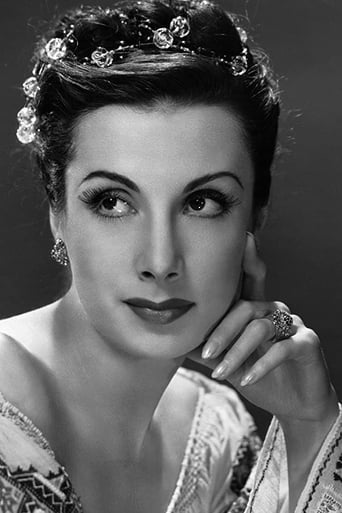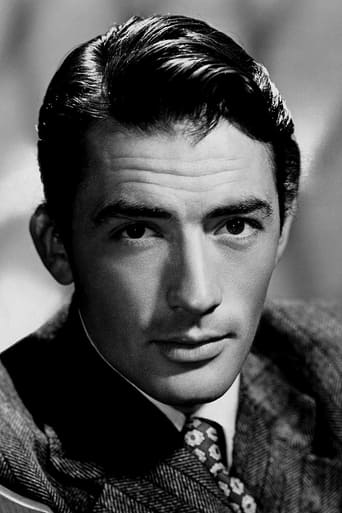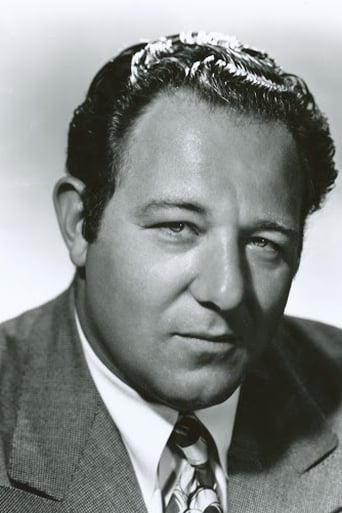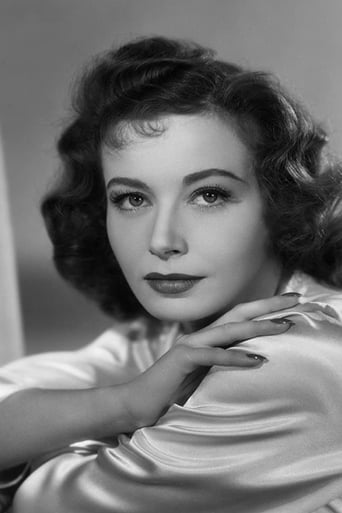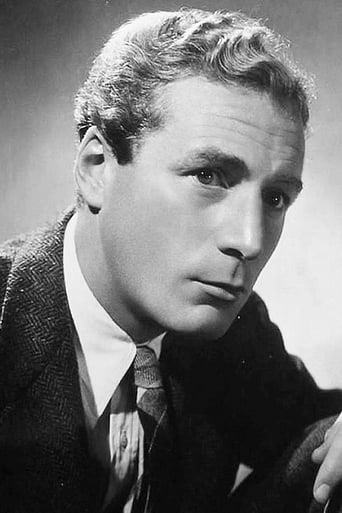Redwarmin
This movie is the proof that the world is becoming a sick and dumb place
BootDigest
Such a frustrating disappointment
FeistyUpper
If you don't like this, we can't be friends.
Stellead
Don't listen to the Hype. It's awful
SimonJack
"Days of Glory" is a story about a Russian resistance group on the Eastern Front in World War II. This was one of a few pro-Soviet films Hollywood made during the war. All were propaganda films to reassure Americans of the role Russia was playing in helping defeat Nazi Germany. But, with very little true information at that time about the Russian resistance and military battles, Hollywood could only romanticize the Russians' roles and characters. And, it did so much as it did with some of the movies it made about our own fighting and heroes. The acting here is OK, and the movie is fair. It's a simple plot that looks at what might be routine days in a small resistance group hideout. Of course, it throws in the usual Hollywood romance. It seems that most Hollywood studios made a film to show and build support for the Soviet Union as an ally in the war. The Hollywood nod to the Russians began in May 1943, with a Warner Brothers' film, "Mission to Moscow." Others that followed were "The North Star" in 1943 by RKO, "Three Russian Girls" in 1943 by United Artists, "The Boy from Stalingrad" in 1943 by Columbia, "The Song of Russia" in 1944 by MGM, and "Counter-Attack" in 1945 by Columbia. Only Universal and 20th Century Fox seem not to have done a film about our Soviet ally. None of these films stand out or show much of the reality of the Russian efforts in WWII. Not until 2001 in "Enemy at the Gates," do we have an American film that shows some of the horror of the war in Russia, and the sacrifices of the Russian people. Since the fall of the Soviet Union other very good Russian and eastern European films have been made about the war on the Eastern Front.What I find curious about "Days of Glory," is its June 16, 1944 release date. This was less than a year before the end of the war in Europe. The movie covers a time of the resistance forces up until the major Soviet counter-attack. But that began after the Soviet defeat of the Germans in the Battle of Stalingrad in February 1943 – almost a year and a half earlier. And, the release of this film came 10 days after D-Day and the Allied landings in Normandy. Why would it be so necessary or helpful at this late date to build American support for Russia in the war? Indeed, was it wise to do any more trumpeting of the Russians with what we already knew then about the Soviet Union – unless there were some other reasons?It's true that the American intelligence effort was relatively new and not yet very well-grounded at the time. But, the American and other western news media were very aggressive and thorough in their reporting of the war as they had been for several years before the war. So, here we have the U.S. government and Hollywood interested in building up the image of the Soviet Union as our ally in fighting the Germans – not before the war, but well into it when the Allies in the West were attacking on all fronts. One must wonder how much the U.S. and Hollywood knew about the atrocities of Joseph Stalin who had been in power for more than a decade by this time. He had ordered the Great Purge in 1936 to 1938. He had ordered the murder and imprisonment of half a million of his own leaders. He had invaded Finland in 1939 and Poland with Germany in 1940. He had annexed the Balkan states of Lithuania, Latvia and Estonia in 1940. All of these things had been reported, and yet the U.S. and Hollywood were still putting out propaganda films in support of Russia late in the war.
Richard Crawford
I caught this film accidentally but was hugely impressed by the script. Although obviously intended to be a wartime morale booster, the story didn't pull punches - good ol' Gregory Peck as the partisan leader, for instance, deciding to save ammunition by bludgeoning a German prisoner to death with a rifle butt. Not something you see every day. A number of really nice moments and dilemmas for the main protagonists are handled well. The partisans are depicted with some realism, and without the rose tinted glasses you might expect. In fact realism is one of the strengths of the film. Everything looks right. And in the climactic combat sequence at the end of Act 3, the partisans seem to be actually shooting at German pzkpfwIV tanks, quite unusual in itself. Wonder where they got those from in 1944. The story and the realism goes a bit haywire in the last few minutes of the film, but it's forgivable given the fact that the war was still going on. Not as powerful as COME AND SEE but for a film that's sixty-odd years old, it comes close. Recommended.
whpratt1
When I viewed this film I was quite surprised to see a very young Gregory Peck,"Spellbound",'45, give an outstanding performance in a black and white film about a few Russian citizens defending their country against the Nazi take over of their town. The Nazi Army utilized many tanks in order to take over this town and out numbered the Russian's by a very large percentage. Tamara Toumanova,(Nina Ivanova),Torn Curtain",'66 gave an outstanding supporting role who was very young and attractive. Nina was able to put some romance into this picture with her good looks and sexy boots. Tamara Toumanova and Gregory Peck were a great couple in this film and it is too bad she decided to marry the director of this film right after production. A great Classic film that is worth while viewing.
Oct
Pray silence, workers and peasants, for a "cast of new personalities" headed by the debut of "Mr Gregory Peck, distinguished actor on the New York stage".A suitably solemn intro for the late Mr P, who supplies a characteristically cigar-store-Indianesque turn as the darkly handsome Russian dam-builder turned train-buster, heading a WW2 band of partisans (i.e., terrorists). His stern Soviet soul is melted only by a sultry ballerina who is stranded with the gang. Other members include a comic peasant double act, a learned Oxonian sidekick and a winsome teen brother and sister, one of whom ends on a Nazi noose (the wrong one, given the girl's saccharine performance).
This retrospectively hilarious and morally objectionable whitewashing of the most murderous tyranny in history- the communist USSR- fudges its politics like all the Hollywood "enemy of my enemy is my friend" wartime propaganda pieces. "Socialism" as the Peck character's creed is never mentioned. Inspiration for the partisans' efforts is made out to be no more than a worthy resentment of trespassers on their home ground, whether it's a dictatorship or not. (By the same logic Hollywood should now be shooting films justifying Iraqi guerilla resistance to the Americo-British occupation, but don't hold your breath.) The unpalatable truth that many in the western Soviet Union welcomed and collaborated with the Germans has to be evaded. In this flick, solidarity is absolute.Apart from this hollowness at the core, the film is a decent string of shoot-em-ups in a convincingly icy studio landscape. The stage actors in the cast were and remained unfamiliar, making the thing seem a mite more authentic than, say, "For Whom the Bell Tolls". But Ms Toumanova, the producer's girlfriend at the time, conceives emotional acting as gazing into the remote distance with her lips slightly parted: the influence of Garbo was disastrous! And it would take Selznick and King Vidor to extract a full-blooded performance from Peck, in "Duel in the Sun". It's curious, incidentally, that Casey Robinson, writer and producer of this paean to Stalin, never got serious heat from the House Un-American Activities Committee after the war. Did he cut a deal?
